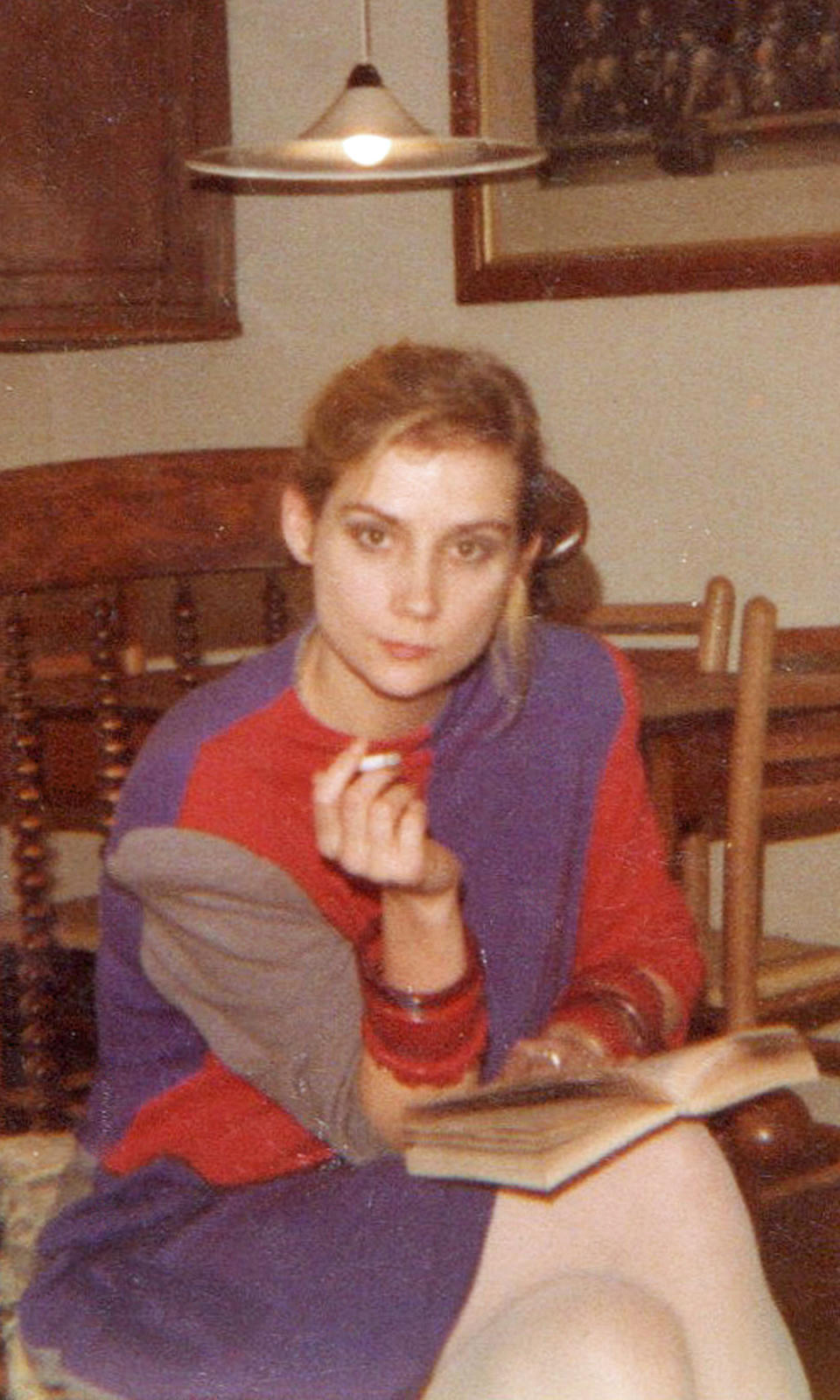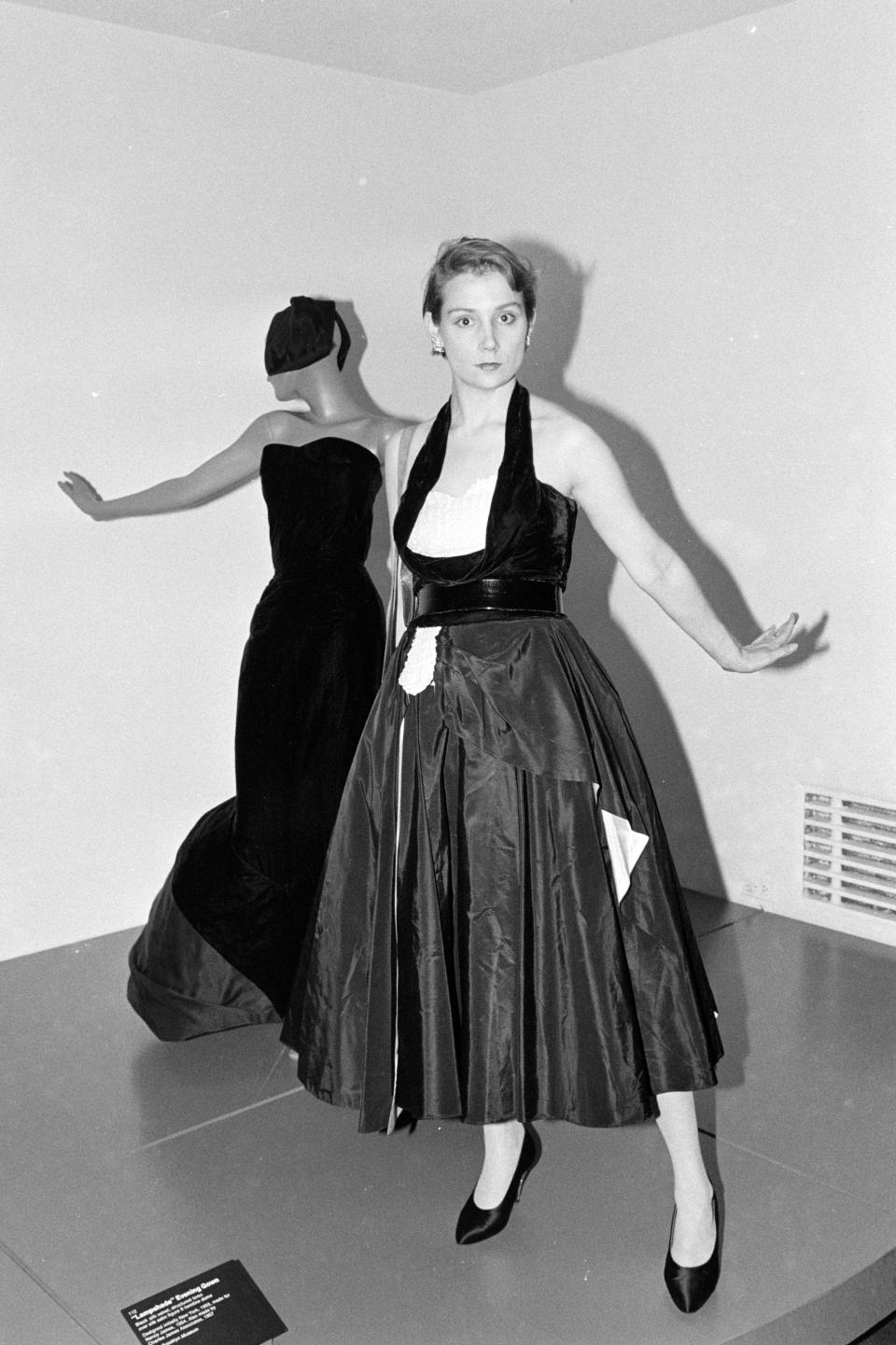Longtime WWD Associate Editor Lorna Koski Dies at 69
- Oops!Something went wrong.Please try again later.
- Oops!Something went wrong.Please try again later.

Lorna Koski, a former longtime associate editor at WWD and W magazine, died May 20 at the age of 69.
A memorial service is being considered for a later date, according to her sister, Judy Bruce.
More from WWD
Koski died in her West Village apartment of pulmonary thromboemboli due to deep-vein thrombosis caused by relative immobility, following surgery for a fractured right ankle after a fall.
Koski’s demure features and soft-spoken manner belied an irrepressible individuality and trove of knowledge that she was inclined to exercise only when asked or to casually mention in conversation. In an industry filled with designer labels, the red-haired Koski was probably the only person who had no qualms about wearing a bonnet and “Bo Peep”-inspired hoop skirt to the office and out on the streets of New York.
After graduating magna cum laude from Harvard University (Radcliffe College) in 1974 with a bachelor’s degree in English literature (British and Commonwealth), she went on to earn a master’s degree from the University of Cambridge in English language and literature/letters — once again graduating with honors.
Of an era when fashion editors were more about how much they knew versus whom they knew, Koski was a behind-the-scenes workaholic. Also of the age when a career choice was a commitment and not a stepping stone to something else, Koski’s tenure at WWD and its then-sister publication W ran from 1982 to 2015. In that role, she was a key member of the fashion department, with an encyclopedic knowledge of the proper name for every sleeve, neckline, skirt or cuff in the history of fashion — and, with a photographic memory, she could pull up that information faster than Google. Routinely immersed in her work, and at times her idiosyncrasies, Koski was often the last to call it a day in the office.
WWD editorial director James Fallon said, “Fashion is filled with memorable personalities and talented people, and Lorna ranks in the pantheon with the best of them. Her knowledge, her writing, her wit as dry as a martini, her unique sense of style — all of those were remarkable enough. But equally so were her immense kindness and loyalty to WWD. She is and always will be unforgettable.”
Relatively unflappable, she was a personality in the newsroom in the days when those were allowed — drawing on a cigarette until one felt she had no breath left in her lungs to do so, talking about her much-adored cats or discussing the latest 500-page book she had just read — in a day. Her fondness for cats was undeniable, as Koski occasionally purred or meowed at coworkers just for laughs and even once reported to Sunday duty in the WWD office with one of her tabbies, which was far from corporate protocol.

Former WWD photographer Kyle Ericksen remembered how Koski liked to jest that her favorite yellow cat “Tommy” bought her jewelry, clothes, hats (including “some killer ones”) and purses. “Whatever she had that was new, wonderful and vintage — Tommy had surprised her with,” she said.
A speed reader, Koski devoured books like a Pac-Man in the library — novels, biographies, fashion histories and more — all with an insatiable curiosity that enriched the pages of WWD with the author interviews she would do. Again, her ability to capture a personality in words was rare. During her career, she interviewed countless writers, performers and designers including Harold Bloom, Robert Gottlieb, Karl Lagerfeld, Yohji Yamamoto, Anne Rice, Domenico Dolce, Stefano Gabbana, Donatella Versace and Vicky Tiel.
Ed Nardoza, former editor in chief of WWD, said, “The word ‘brilliant’ is so overused today that it’s lost all its meaning, but in the case of Lorna Koski, the word truly applies.
“I can remember at one point, Harold Bloom, the Yale literary critic who was probably the most important literary critic in the last 50 years in America, and he had a new book out, and we thought, ‘Who can we send to interview Harold Bloom?’ and we said, ‘Let’s try Lorna.’ Not only did Lorna know who Harold Bloom was, but what his significance was and she read most of his books. She went to interview Bloom and came back with a story that was erudite, it was informed, it was witty and she charmed Bloom into a great interview. Her cultural IQ was so high, she mostly read all these authors, and she would just come back with a little gem of a story.”
Nardoza recalled one time when Karl Lagerfeld was in town for a few days and others were on assignment. “We said, ‘Who’s going to keep up with Karl with all his crazy, esoteric references and his rapid-fire delivery?’ And referencing all kind of fashion icons? We sent Lorna. She did a quick-turn interview of an afternoon with Karl Lagerfeld and it was just great.”
Former WWD managing editor Mort Sheinman said, “She was an extraordinarily hard worker, who put in long hours and was always available when you needed her.”
Koski eventually switched over to writing obituaries for the publication, bringing her vast knowledge of fashion history, culture, the arts and society to bear in that genre where capturing a personality is a challenge. Her portfolio of obituaries for WWD included ones for Elizabeth Taylor, Nora Ephron, Helen Gurley Brown, Helen Rochas, Liz Smith, Judith Leiber and Aileen Mehle. After exiting WWD in 2015, she worked as a freelance writer and continued to write obituaries for WWD.
Born in Lihue on the island of Kauai in Hawaii, Koski, was adopted, as were her siblings, the aforementioned Bruce, a brother Paul and another brother Victor, the latter who predeceased her. Their English teacher mother had taught girls in India before marrying their father, an electronics technician who set up weather stations for the U.S. Weather Bureau. After some time in Guayaquil, Ecuador, the family settled in Pendleton, Ore. Lorna Koski’s childhood interests spanned music (a first chair violinist), theater, running and, of course, scholastics.
Growing up, the family canvassed Western states, Mexico, Canada and Alaska on road trips. “Our dad was very frugal and we didn’t stay in hotels. We had a pup tent attached to the station wagon,” Paul said.
Bridget Foley, former longtime executive editor of WWD, recalled how in an open newsroom “much is heard and overheard,” and Koski’s “dry-wit asides on the daily buzz were often hilarious.” She said, “Lorna was interested in everything, which made her an engaging conversationalist and excellent at her job. She could add sparkle to the most bland fashion copy, dressing it up with references that ranged from Baudelaire to Backstreet Boys.
“Speaking of dressing up, Lorna’s personal fashion aesthetic was eclectic. She had a penchant for pastels, worn in dissonant compilations of vintage and new pieces. The daily train commute in from Brooklyn didn’t deter her from looks that often featured a ’40s-facing line (Easter-egg hued) and sometimes, a veiled cocktail hat,” Foley said, “Years ago, when NYFW ended on a Friday, we on the fashion staff would file our last reviews, ‘close’ what was then still the paper and go out for a celebratory dinner. One season we went to a restaurant with a piano bar. Lorna pulled a Michelle Pfeiffer, and hopped on the piano. She sang beautifully. I don’t remember the song, but the skirt accommodated a leg kick.”

Dustin Pittman
Another former WWD managing editor Dianne Pogoda said, “Many people excel in one area; Lorna was a rare professional who could combine skills of writing, editing, and an encyclopedic knowledge of general culture, movies and the fashion industry — past and present — and put it all in context. I learned a lot from her.”
W magazine’s former creative director Dennis Freedman said, “Lorna was like no one else. She seemed to inhabit a very special world. At a time, when there is so much uniformity, it was so refreshing to know Lorna. ‘Unique’ only begins to describe her — brilliant, mysterious, kind, fragile. She was one of those people who were known only by her first name.”
Nicole Phelps, global director of Vogue Runway and Vogue Business, recalled her earlier days working with Koski at WWD and volunteering as docents at the Brooklyn Botanic Garden: “The Fairchild newsroom at 7 West 34th Street was a colorful place in the late ’90s, but no one was more colorful than Lorna Koski. I was on the W Magazine and WWD Accessories desk, and she edited my pieces. We’d discuss my copy and she’d try on the flamboyant hats we’d call in for shoots. She was a mentor who became a friend. Lorna was a true eccentric — acerbic when she wanted to be, but kind and generous on the flip side. She gave great gifts. And she never failed to make an impression, including at my 2007 wedding, which she attended in a cloud of fuchsia tulle, which really wowed our out-of-town guests.”
In recent years, Koski was “an incredible caretaker” after her spouse Kathleen Berger had a lung transplant, Berger’s brother Warren said. “That really dominated Lorna’s life the last couple of years.”
The pair wed several years ago, but first connected as coworkers at WWD in the ’80s. Berger, a longtime Newsweek editor, died in January and the loss “seemed to have a big, big effect, causing Koski to withdraw,” Warren said. “She didn’t really recover from that.”
As one of the regulars at Barrow’s Pub, Koski was remembered by senior bartender Robert Shapiro as “an old-school editor who was highly educated. But she was not an uncommon customer at Barrow’s Pub, which has the most eclectic clientele. She fit right in. She loved it. She would sing. She would play music — old Frank Sinatra. She would dance,” he said. “She was a real part of the Barrow’s family.”
He added, “She was trying to enjoy the latter years of her life. She just let her health go unfortunately. She didn’t take good care of herself.”
As for how Koski would have liked to be remembered, her sister said, “I hear this all the time — she was fun to be around. She was just fun.”
Koski is survived by her sister, brother and numerous nieces and nephews. In lieu of flowers, Bruce suggested any donations be made to a cat rescue organization in Brooklyn or Manhattan.
Best of WWD
Sign up for WWD's Newsletter. For the latest news, follow us on Twitter, Facebook, and Instagram.

